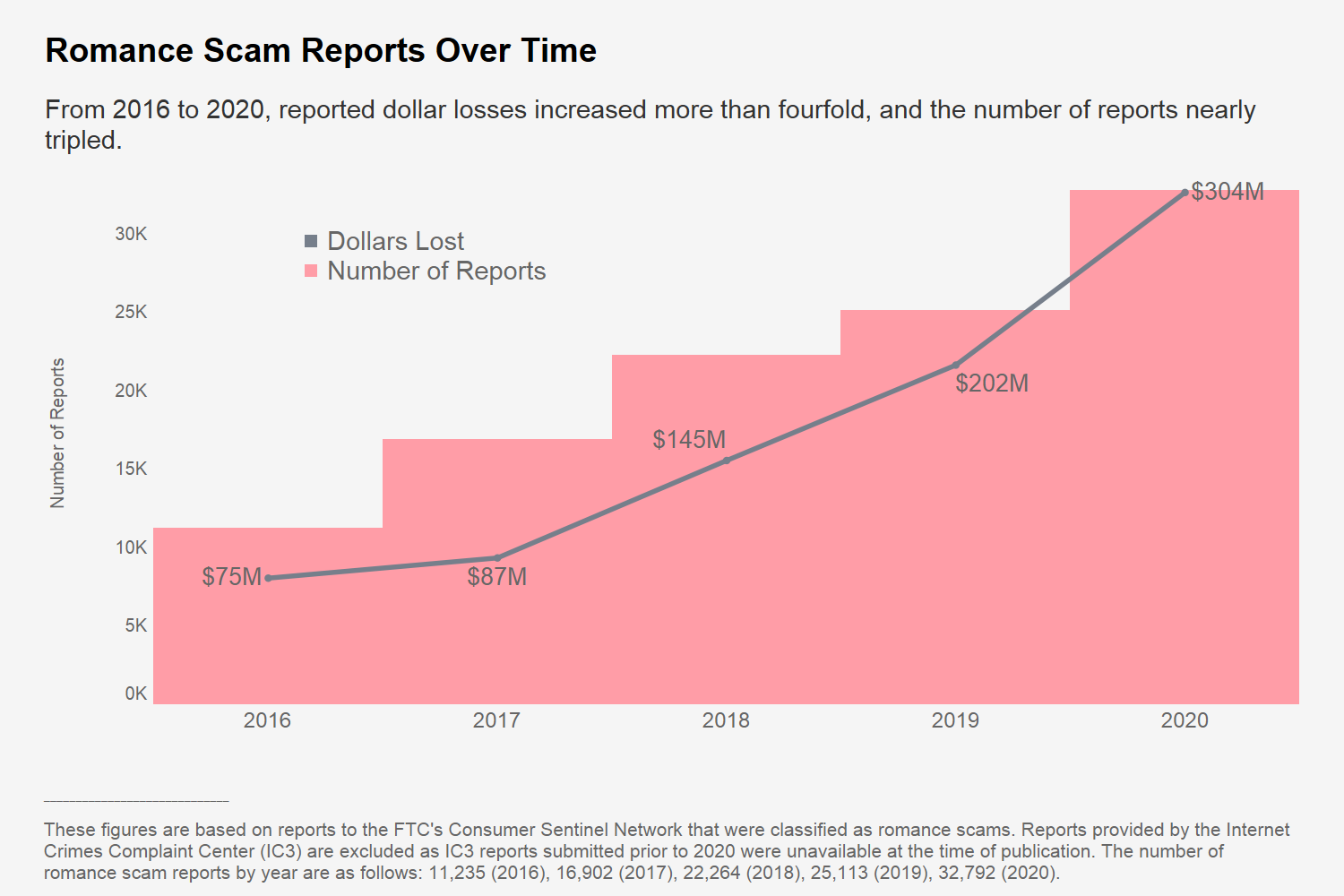Pandemic helped romance scammers make a record $304 million in 2022
In brief: The pandemic has had many effects—chip shortages, a booming video game industry, working from home becoming the norm, etc.—though one less expected effect is the huge corporeality of money lost to romance scams. In 2022, a record $304 1000000 was conned out of lone people, an increase of around 50 percent compared to 2022.
A Federal Trade Commission study notes that for three years running, people reported losing more coin to romance scams than any other type of fraud identified in the FTC'southward Sentinel database. Last year saw private median losses reach $ii,500.

It appears 2022'south record was caused in part by the pandemic. With social distancing, closed venues, and and then many singletons forced to stay indoors, fake online romances in which the people involved never meet became increasingly common.
The number of showtime-time dating app users likewise spiked terminal year. Scammers often use photos taken from the web combined with false names to lure people in—remember, that Henry Cavill/Scarlett Johansson lookalike going past the proper name John/Jane Smith is unlikely to be real.
Beyond dating apps, some scammers apply social media to find their targets, often through unexpected friend requests or letters.
Afterwards a menstruation in which the scammer establishes a human relationship with the victim, they will somewhen enquire for money, often in the form of a gift card or phone carte du jour to keep communicating, or wire transfers for made-upwards medical emergencies. Last year saw many criminals exploit Covid-19 fears to withdraw greenbacks from their targets by eliciting their sympathy.
Many of those who suffered the largest losses say the scammers sent them a large sum of money showtime. The victims are then asked to ship the funds back to the scammer or someone else. This is frequently a way of laundering stolen funds.
While those aged xx to 29 experienced the highest jump in reported incidents, people between 40 and 69 were near probable to report losing money in romance scams. Those aged seventy and over had the highest private losses: $9,475.
The FTC gives the post-obit communication to anyone looking for love online:
- Never send money or gifts to someone you oasis't met in person – even if they transport you money first.
- Talk to someone yous trust virtually this new dearest interest. It can be easy to miss things that don't add up. So pay attention if your friends or family are concerned.
- Take it slowly. Ask questions and look for inconsistent answers.
- Try a opposite-image search of the contour pictures. If they're associated with another name or with details that don't match up, it'due south a scam.
Image credit: Pixel-Shot
Source: https://www.techspot.com/news/88639-pandemic-helped-romance-scammers-make-record-304-million.html
Posted by: trainorwimen1956.blogspot.com


0 Response to "Pandemic helped romance scammers make a record $304 million in 2022"
Post a Comment